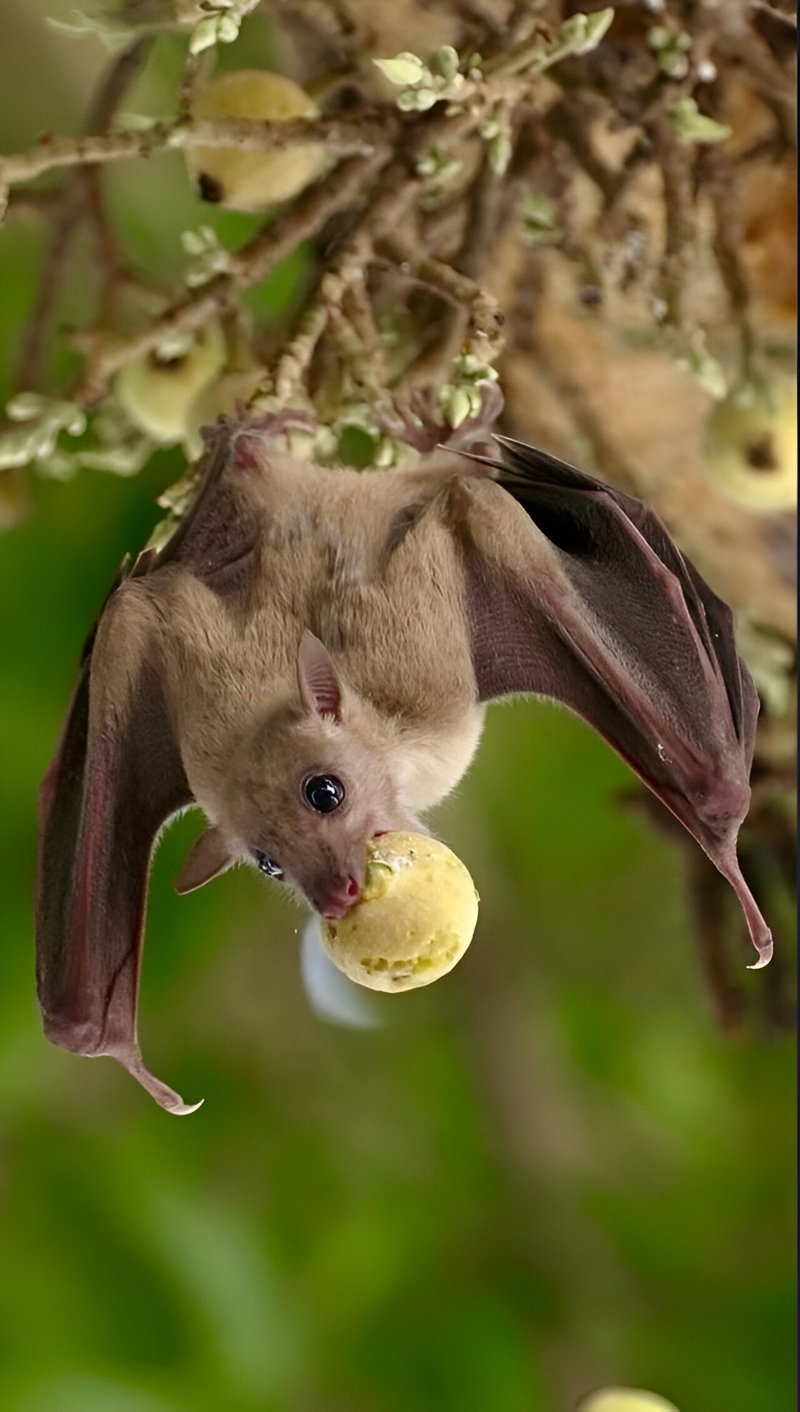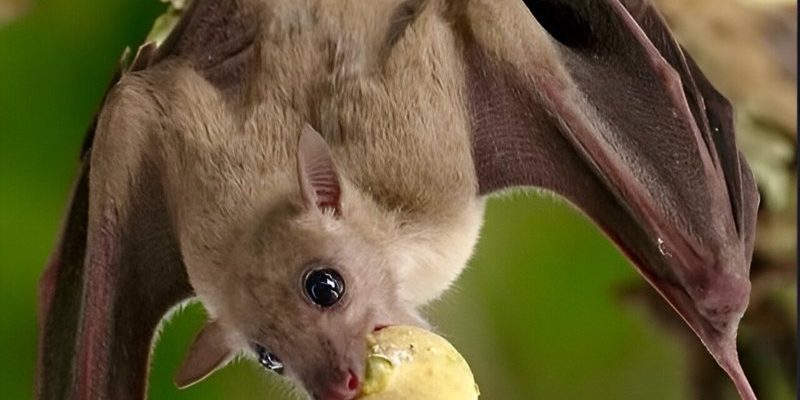
Fruit bats, also known as flying foxes, can be found in various parts of the world, from tropical rainforests to even urban environments. Unlike their vampire cousins, they feast on fruits, nectar, and sometimes insects. Their lifestyle isn’t just about eating and sleeping; they exhibit remarkable social structures, foraging techniques, and even communication skills that hint at their intelligence. So, pull up a chair, grab a coffee, and let’s chat about the incredible cognitive abilities of fruit bats.
What Makes Fruit Bats Unique?
Fruit bats are fascinating creatures, not just because of their size but also due to their diverse behaviors. These bats belong to the family Pteropodidae and can have wingspans of over five feet! But size isn’t everything. Their unique adaptations make them vital players in their ecosystems.
First off, fruit bats are particularly important for pollination and seed dispersal. Think about it: as they feed on fruits, they help plants reproduce by spreading seeds. This not only supports the growth of new plants but also maintains the health of the forest. Their role in the environment is much like that of bees and other pollinators, showcasing their importance in maintaining ecological balance.
Another characteristic that sets fruit bats apart from other bat species is their social behavior. They tend to live in large colonies, often roosting together in trees. This social structure allows them to develop strong bonds and communication systems. Imagine a bustling community where everyone has a role—keeping each other safe, finding food, and raising young. This social aspect contributes to their overall intelligence and adaptability.
The Brain of a Fruit Bat
You might be surprised to learn that fruit bats have relatively large brains compared to their body size. In the animal kingdom, brain-to-body ratios can give us a good idea of an animal’s cognitive abilities. Fruit bats demonstrate this with their highly developed brains that rival those of primates when it comes to problem-solving skills.
What does this mean for their intelligence? Well, the size of their brains correlates significantly with their ability to learn and adapt. They have been observed using tools, such as leaves, to help them access food. If that isn’t clever, I don’t know what is! Such behaviors indicate the capability for reasoning and adaptation, essential elements of higher intelligence.
Additionally, studies show that fruit bats exhibit impressive memory skills. They can remember the locations of food sources over long periods. Just like how we might remember a favorite restaurant or a great picnic spot, fruit bats seem to have excellent spatial memory, allowing them to navigate large territories efficiently.
Communication Skills and Social Structure
Have you ever watched a group of fruit bats interact? Their communication is quite sophisticated! Fruit bats use a range of vocalizations, body language, and scents to convey messages. They can make a variety of sounds, from chirps to more complex calls, which serve different purposes—whether it’s to signal danger or coordinate foraging efforts.
This leads us to their social structure. Within their colonies, fruit bats show remarkable social dynamics. They form friendships and bonds, sometimes even grooming each other to strengthen relationships. This social grooming isn’t just for cleanliness; it’s a way to reinforce social ties, demonstrating a level of emotional sophistication that might surprise many.
Here’s the thing: their ability to communicate and form social bonds suggests a level of emotional intelligence. You might think of it as their way of “talking” and “connecting” with each other, similar to how humans build relationships. It’s not just survival of the fittest for fruit bats; it’s about thriving together.
Foraging Intelligence
Let’s talk about how fruit bats find food. These bats are experts at foraging, which requires not only physical skill but also high-level thinking. They often forage individually or in small groups, using their keen sense of smell and sight to locate ripe fruits.
But it’s not just about sniffing out a mango or an apple; they also display remarkable adaptability in their foraging strategies. Depending on the season, they adjust their diets to include different fruits and flowers, demonstrating their problem-solving abilities. Imagine needing to change your meal plan based on what’s available at the grocery store; fruit bats do this instinctively!
They’ve been known to observe other bats and learn from them, much like how we might watch a cooking show to pick up new recipes. This social learning can help them discover new food sources or better foraging techniques—an impressive adaptive behavior that points to their intelligence.
Learning and Memory
If you think about it, one of the keys to intelligence is the ability to learn from experiences. Fruit bats have shown that they can remember previous experiences, whether good or bad, and use that information to guide their future decisions.
For example, if a fruit bat has a negative experience with a particular fruit (perhaps it was rotten or toxic), it’s likely to avoid that fruit again. This capability to learn from mistakes is a sign of intelligence and helps them thrive in their environments.
Interesting studies have shown that fruit bats can even recognize individual calls of their colony members. This suggests a level of familiarity and memory that is pretty advanced. Imagine being able to recognize your friends’ voices even in a loud, crowded room; that’s kind of what fruit bats do!
Fruit Bats and Their Ecosystem Contributions
Understanding fruit bat intelligence isn’t just about marveling at their cleverness; it’s also crucial for recognizing their role in the ecosystem. Their behaviors, particularly in foraging and pollination, contribute significantly to plant diversity and the overall health of their habitats.
As pollinators, fruit bats help in the reproduction of various plants, which in turn supports many other species. Think of it like a domino effect; when one species thrives, it supports others, creating a vibrant and sustainable ecosystem.
Moreover, when fruit bats disperse seeds, they help plants colonize new areas, contributing to the regeneration of forests. This is essential for combating climate change, as healthy forests act as carbon sinks. By safeguarding fruit bat populations, we’re also protecting the intricate web of life in which they play a pivotal role.
Why Should We Care About Fruit Bat Intelligence?
So, why does all this matter? Understanding how smart fruit bats are can help us appreciate their role in nature. It’s easy to overlook these creatures when thinking about animal intelligence, especially when we often think of mammals like dolphins or elephants as the brainiacs of the animal kingdom.
But by recognizing the cognitive abilities of fruit bats, we can advocate for better conservation efforts. As their habitats face threats from development and climate change, knowing their intelligence and ecological importance becomes crucial in driving conservation initiatives.
Additionally, fostering a greater appreciation for these creatures can lead to increased awareness about their ecological roles and the need to protect them. Protecting fruit bats isn’t just about saving a species; it’s about preserving the balance of our ecosystems and ensuring a healthy planet.
In conclusion, fruit bats are not only amazing flying mammals but also intelligent beings that contribute significantly to their ecosystems. Their cognitive abilities, social structures, and foraging skills highlight a complexity that many might not expect from these nocturnal creatures. By learning more about fruit bats, we can better appreciate the natural world and take steps to protect it for generations to come.

